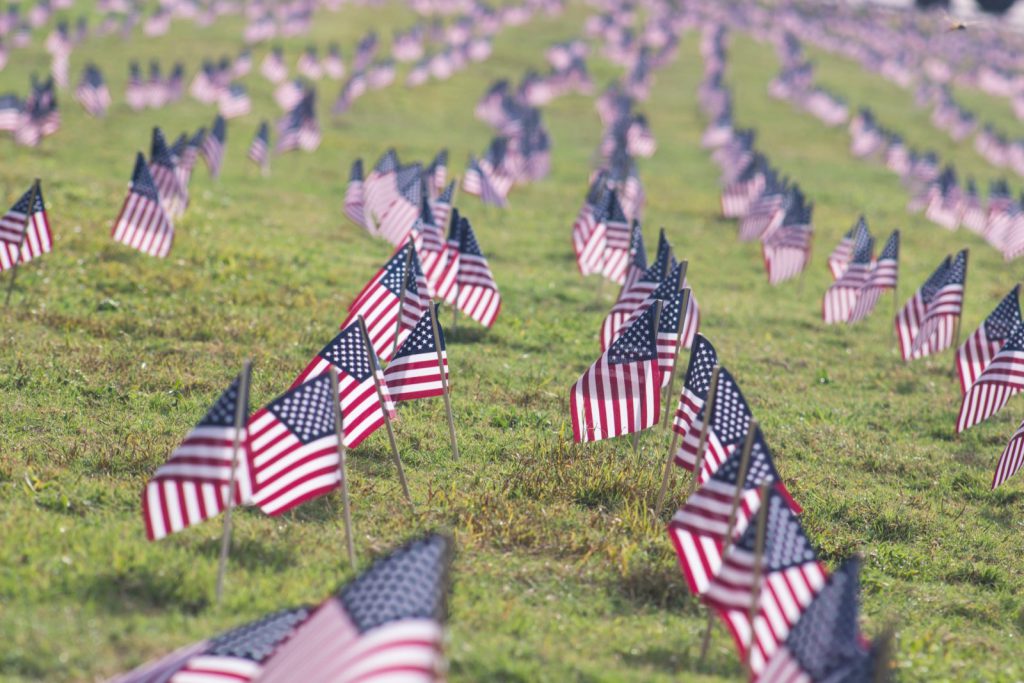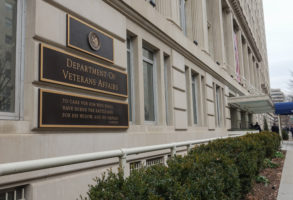
Published November 24, 2016
It was a simple gesture, perhaps automatic, and easy to overlook amidst the crush of well-wishers and reporters.
Monday morning, wounded combat veteran Staff Sgt. Marko Milosevic was walking alongside his family and Fox News contributor Pete Hegseth. Cameras filmed their every step as they approached the veteran’s new home. Suddenly, Milosevic momentarily dipped out of sight.
An Army ranger, deployed a dozen times and serving more than four years cumulatively in Iraq and Afghanistan, Milosevic earned two Bronze Stars (one for valor), but also suffered a traumatic brain injury that ended his military career.
Through the Heroes to Homeowners program, supported by U.S. Bank and the Freedom Alliance, Milosevic, his wife Samantha and their three children were about to receive a newly renovated, mortgage-free home: a secure future, offering less financial stress and greater peace. Fox News was covering the “big reveal” as Milosevic and his family prepared to enter their new home for the first time.
But as he walked toward his new home, deeply grateful and beaming with joy, shaking hands and exchanging hugs with cheering friends and neighbors, Milosevic suddenly bent down and picked up a small American flag that dropped to the ground. No one else seemed to notice it was there. No one else thought to pick it up.
But this hero didn’t miss it: Four inches square, the flag testified to the weighty sacrifices and soaring aspirations of countless Americans. Milosevic didn’t call attention to his actions. He simply picked up that small flag and carried it with him into his new home, his gratitude for what he received inseparable from his awareness of what others had given.
Why recall this story for Thanksgiving? Because Milosevic’s humble gesture tells us something about what it means to have a grateful heart.
The blessings of today are always deeply entwined with the toil and sacrifices of others who precede us. True gratitude, then, walks hand in hand with memory and humility, acknowledging others’ priceless generosity. Gratitude looks outward, beyond self, to acknowledge the giver along with the gifts.
That’s a tall order this Thanksgiving, at least for some Americans. Gratitude doesn’t co-exist well with bitterness, outrage and resentment.
The bitterness of the presidential campaign is now entrenched. Worse, blue venom seems likely to turn temporary divisions into permanent separations.
“There are two Americas now,” a Democrat named Shannon Coulter told the Washington Post. “I am not part of one of those Americas,” she said, and “I shouldn’t bother trying to be.” Similarly, Leon Wieseltier, a senior fellow at the Brookings Institute, told fellow progressives to “stay angry. That’s the only way to uphold principles in Trump’s America.”
The hatred spewing from college campuses shows students are also caught in an endless feedback loop of resentment and hostility. Perhaps what ails these millennials and the younger “Generation Z” is not only their collective sense of entitlement, but also their thin cultural memory.
They don’t know America. Listen to Tunmise Fawole, a senior pre-med student at the University of Pennsylvania (annual cost of attendance: nearly $70,000 ).
Post-election, she berated her fellow students for declaring themselves “allies” of the oppressed while failing to “dismantle the systems that have perpetuated white supremacy and other forms of discrimination.” (What systems? The United States? The University of Pennsylvania?) Fawole likely won’t be bowing her head in Thanksgiving gratitude, not with so many oppressive systems still waiting to be dismantled.
It’s impossible to be truly grateful without remembering the generosity, sacrifices and labor of the gift-giver.
The “Watters’ World” segment on the “O’Reilly Factor” routinely spotlights the appalling ignorance of college students about the Constitution and U.S. history. Our brightest students aren’t much better. Advanced Placement courses (“a national curriculum controlled by the Left,” says scholar Stanley Kurtz) and then liberal professors teach them to see America as an oppressor, capitalism as evil and religion as irrelevant.
Small wonder America’s future leaders show little gratitude towards God or their American forebears. No surprise either that ideological “stories” of oppression fill out their (fictional) cultural memories.
But here’s the good news: Ideologues may work to shred our cultural memory and thin the roots of our gratitude, but ordinary Americans can replant the seeds of deep gratitude on a daily basis.
Milosevic didn’t have to attend college to know the past sacrifices of American patriots or the goodness of the U.S. The true stories of Americans’ personal sacrifices, generosity and courage, which are the foundations of today’s gratitude, live on in military culture, in many families, in red-state communities and surely in some blue-state communities too.
Our shared experiences of hard work, collaboration and success, combined with inspiring stories of great Americans, can still pass from one generation to the next and help recreate the foundations that underlie true gratitude. Young Americans who lost, or never gained, their rich cultural memory can recover it, even over Thanksgiving dinner.
Vogue magazine told its readers this week that the secret to “surviving” Thanksgiving dinner with relatives who voted differently is for “each family member to share what they are most grateful for this year” — but “the only rule is the answer can’t be Donald Trump.”
Here’s a better idea: Take your inspiration from Milosevic, whose gratitude for what he receives is rooted in his awareness of those who have given.
Surely Americans, red and blue, see that a heart full of anger has no room for gratitude, and a heart without humility lacks night vision. It can’t discern any blessings amidst apparent darkness.
This Thanksgiving, let’s give thanks first to God and then look outward, acknowledging the givers before the gifts, sharing the stories behind the blessings and giving honor to those who deserve our deepest thanks. Happy Thanksgiving!
Mary Rice Hasson is a fellow at the Ethics and Public Policy Center.




